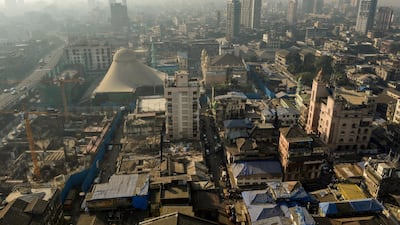Developers in India are increasingly focusing on green building projects, as businesses start to value the economic benefits of such developments and as the country strives to reduce its carbon footprint.
India has the highest number of sustainable real estate projects after the United States, at more than 4,300 developments, according to the Mumbai-based property consultancy Anarock.
“True, this is only 5 per cent of the total buildings in India,” says Anuj Puri, the chairman of Anarock, "however, the country’s market for green buildings is expected to double in the next few years and may reach up to 10 billion square feet by as early as 2022, at a valuation of between $35 billion to $50bn.”
Green building technologies can reduce a building’s energy consumption by up to 30 per cent and halve water consumption, according to Anarock.
India's government has pledged to reduce carbon emissions under the Paris climate change agreement. The country is the third-highest carbon emitter in the world and real estate is a major offender.
_______________
Read more:
India on road to electric car future but roadblocks remain
What a trade war might mean for India
_______________
Hiranandani Group, based in Mumbai, is one developer that is focusing on green initiatives within its projects.
Niranajan Hiranandani, the managing director of the firm, said the company's township in Powai in the norther suburbs of Mumbai recycles 4 million of litres of sewage water every day and has planted 4 million trees spread over 250 acres. Meanwhile, the developer boasts the highest number of platinum LEED certified buildings in the city - the highest category in the world's most widely used green building rating system.
“Making green buildings is not only viable, but it makes business and economic sense,” says Mr Hiranandani, saying the savings on energy spend would continue over the lifespan of a building. “Obviously there is some investment that you have to put in at the beginning, but ultimately the payback is so good.”
He says the average residential consumer in India “was still not not that conscious” with regards to seeking out green buildings when making a purchase decision but that commercial buyers “were far more conscious” because of the long-term cost savings.

